Bhutan isn't just carbon-neutral ... It's the world’s first carbon-negative country
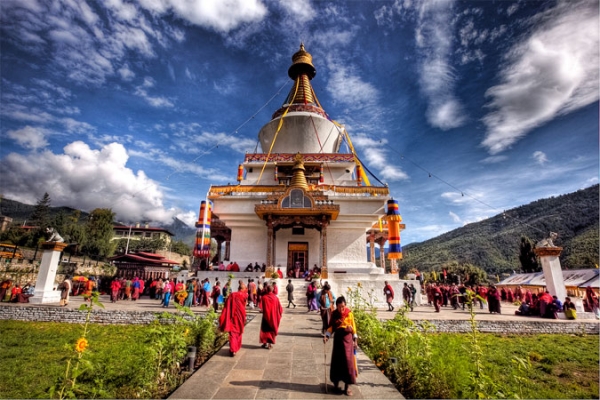
The small nation is hailed as one of the greenest countries on Earth
The small nation is hailed as one of the greenest countries on Earth
The Kingdom of Bhutan, located within the Himalayas between India and China, is already suffering from the effects of global warming. That is the reason why this tiny country of about 750,000 people, decided to take action and actually managed to set some very impressive environmental benchmarks.
To begin with, it is the first and only country to officially be carbon negative, meaning that its carbon sinks (ex. forests), absorb more carbon dioxide each year than it is emitted by sources of pollution. The figures show that around 1.5 million tonnes of carbon are emitted annually, while over 6 million tonnes are absorbed by the forests. That’s because the country is currently 72% forested and under a constitutional amendment of 2009, this percentage should not fall below 60% while export logging has also been prohibited. Vijay Moktan, Conservation Director of the World Wildlife Fund (WWF), said: “It was easier for us, than say India or China, because we have only 20 people per sq. km. We have also had political commitment. In the 2000s, pressure began to build on the forests. There was a lot of demand for timber. So, when Bhutan became a democracy in 2008, a mandatory 60% forest cover was introduced in the constitution. We now have 70% cover.”
In order to ensure the country stayed carbon neutral, a series of policies have been introduced. The prioritization of hydroelectric power generation by Bhutan’s many rivers over fossil fuels, the provision of free electricity to rural farmers to lessen their dependence on wood stoves for cooking, and the government’s partnership with Nissan to provide electric cars to the country, aiming to eventually convert all of the country's vehicles to electric power, are only some of them. The country is also aiming to grow 100% organic food by 2020, to produce zero waste by 2030 and to increase its share of renewables, particularly wind and solar. In comparison, many other small countries have not even achieved carbon neutral status yet.
Since 1972, Bhutan has based their political decisions on a Gross National Happiness (GNH) index, rather than the typically used Gross Domestic Product (GDP). All government policies are vetted according to GNH, and what the Bhutanese call the four pillars: good governance, sustainable promotion of socioeconomic development, preservation of culture and environmental conservation. A 2015 survey found 91% of Bhutanese people were narrowly, extensively or deeply happy.
Source: Climate Action
Source: Climate Action
Want to read more like this story?
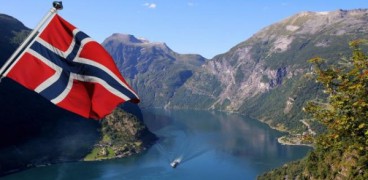
Norway aims to achieve carbon neutrality by 2030, twenty years ahead of schedule
Aug, 19, 2016 | NewsThe country’s gesture is more than welcome, although there is a lot of skepticism regarding it...
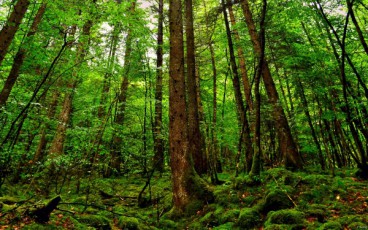
Norway becomes the first country to ban deforestation
Jun, 16, 2016 | NewsMany private companies globally have made similar commitments, but this is the first time a governme...

Australia Is Forced To Reduce By 30% The Emissions Of Carbon Dioxide
Jul, 20, 2015 | NewsAustralia is required to reduce by 30% the emissions of carbon dioxide by 2025. The decision was mad...
The prospects for carbon-neutral buildings
Oct, 27, 2023 | NewsIn the United Kingdom, buildings account for 33% of greenhouse gas emissions and 40% of global ener...
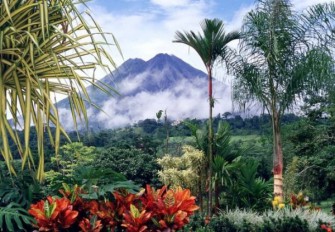
Costa Rica goes 100% renewable this year!
Aug, 30, 2016 | NewsThe country continues to produce more than 99% of its electrical energy from renewables for a third...

The First Industrial-Scale Plant For Capturing Carbon Dioxide
Oct, 27, 2015 | NewsClimeworks AG develops the first plant for Carbon Capture carbon dioxide directly. Climeworks AG...

From Emissions to Solutions: The Rise of Carbon-Storing Highways
Mar, 30, 2025 | NewsThe UK is at a turning point in road construction. As the government shapes its Road Investment Str...

China is the world's biggest producer of solar energy by capacity
Feb, 16, 2017 | NewsThe country’s solar power capacity almost doubled in 2016 The country’s solar power c...

Carbon sequestration in soils cannot fix climate change to the extend it was thought to
Nov, 01, 2016 | NewsSoil as carbon storehouse needs to be part of, not the whole solution Soil as carbon storehouse n...
Trending
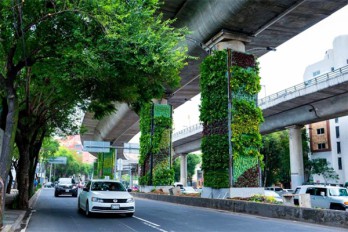
Vertical gardens in Mexico City to combat pollution

Saudi Park Closed After 360 Big Pendulum Ride Crashes to Ground, 23 injured
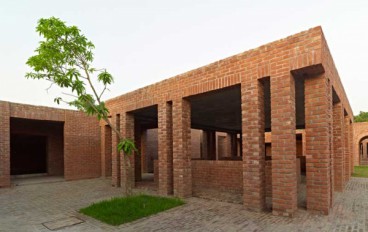
Characteristics of Load Bearing Masonry Construction

Taipei 101’s impressive tuned mass damper
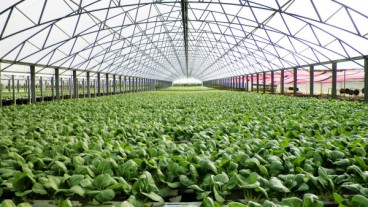
Dutch greenhouses have revolutionized modern farming

Federal court rules Biden’s offshore drilling ban unlawful


